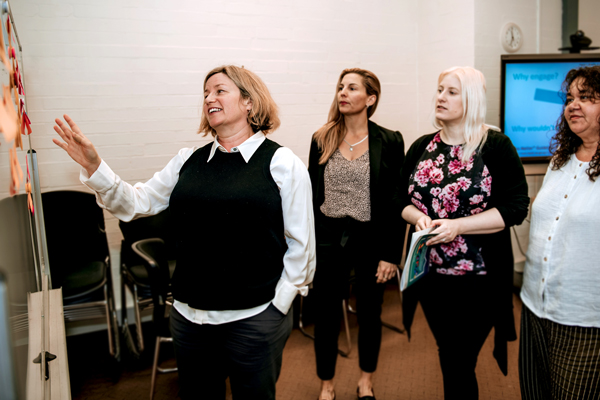
The Federal Election 2025 is fast approaching, and for Australians, we have been keeping an eye on the announcements from the major parties to see what they are saying about health – this is an important opportunity for healthcare system consumers like you and me to use our vote to shape the future of our healthcare system to make a stronger, fairer, and more accessible system for everyone.
Healthcare issues in the 2025 federal election are front and center. From bulk billing cuts to aged care reforms, Australians are asking critical questions:
How will Medicare evolve after the election?
Will rural and regional Australians finally gain better healthcare access?
What commitments will political parties make toward mental health funding and health equity?
Health election promises need to be about more than spending money on hospitals, although that is always welcome and necessary. It is important to look at investments in health in a way that makes a difference to people’s lives, even if they are not currently a patient in a hospital, because we all use the health system.
At Health Consumers’ Council we want to see increased investment in primary care, increased investment in preventative health measures, a continued focus on improving the efficiency and capacity of the hospital system and improved access to health care in the community. Women’s health has also been a priority this election, so we’re tracking that too.
At the Health Consumers’ Council, we believe that a healthy society is the foundation of a thriving community. That’s why we’re urging everyone to look at the 2025 federal election through a health lens. We’ve had a look at what the major parties have said about each of our priority areas and we’ve summarised them for you, to help you decide what is important for you in health when you are going to vote:
| Our Priority | Labor | Liberal/National | Greens |
| Increased investment in Primary Care |
|
|
|
| Increased focus on preventative health |
|
|
|
| Access to care in the community |
|
|
|
| Women’s health |
|
|
Many of our allies in the health consumer and social services sector have published what they are seeking in the election, and we’ve summarised some of these here for you.
- Cost of living support for carers – increase Carer allowance by 15% and a one off boost of $300 to the Carer Supplement
- Superannuation for carers
- Expand the Young Carer Bursary
- Expand the Carer Inclusive Workplace Initiative
- Carer Recognition – training professionals to identify and support carers from the beginning
- Increase Medicare bulk-billing incentives to encourage more practitioners to bulk bill, particularly in areas with low rates of bulk-billing and socio-economic disadvantage
- Reform the Medicare Safety Net to ensure it is more effective in reducing costs
- Introduce a system to ensure automatic application of Pharmaceutical Benefits Scheme Safety Net pricing
- Work towards universal affordable dental care and implement the next 10-year National Oral Health Plan
- Support longer and more flexible specialist referrals, so consumers don’t have to keep going back to their GP
- Allow other healthcare providers to refer patients to specialists where appropriate
- Fund Men’s health
- Act on Male Suicide
- Improve Boys Education
- Support Aussie Dads
Australian Women’s Health alliance
- Affirm abortion as essential healthcare
- ensuring the Medicare Benefits Schedule includes appropriate remuneration for healthcare providers to deliver affordable care
- supporting workforce capacity building by working with medical and professional colleges providing sexual, reproductive and maternal healthcare training
- ensuring public hospitals provide abortion care as part of standard, comprehensive reproductive health services
- working with state and territory governments to implement all 36 recommendations from the Senate Inquiry into universal access to reproductive healthcare.
- Fund dental care for seniors
- Review and increase rental assistance payments for seniors
- Energy bill relief for pensioners
- Affordable basic internet plans for seniors
- Expand the lower-income super tax offset scheme (LISTO) to ensure those earning between $37,000 and $45,00 are included
- Create innovative programs to help older women find affordable housing and improve their financial knowledge
- Create a national plan that improves outcomes for an Ageing Australia and tackles ageism
- Require businesses to accept cash payments and prohibit debit card fees
- Create a peer-led training and support service for victims of online fraud and scams
- Provide elder abuse prevention and support services – including for older women experiencing family violence
- Ensure people requiring aged care services in their home don’t have to wait longer than 30 days for the support they need
- Test a program that provides medical care at home to help older people avoid hospital stays
Bronwyn Ife | Systemic Advocacy and Engagement Lead
For media enquiries: 0488 701 839





